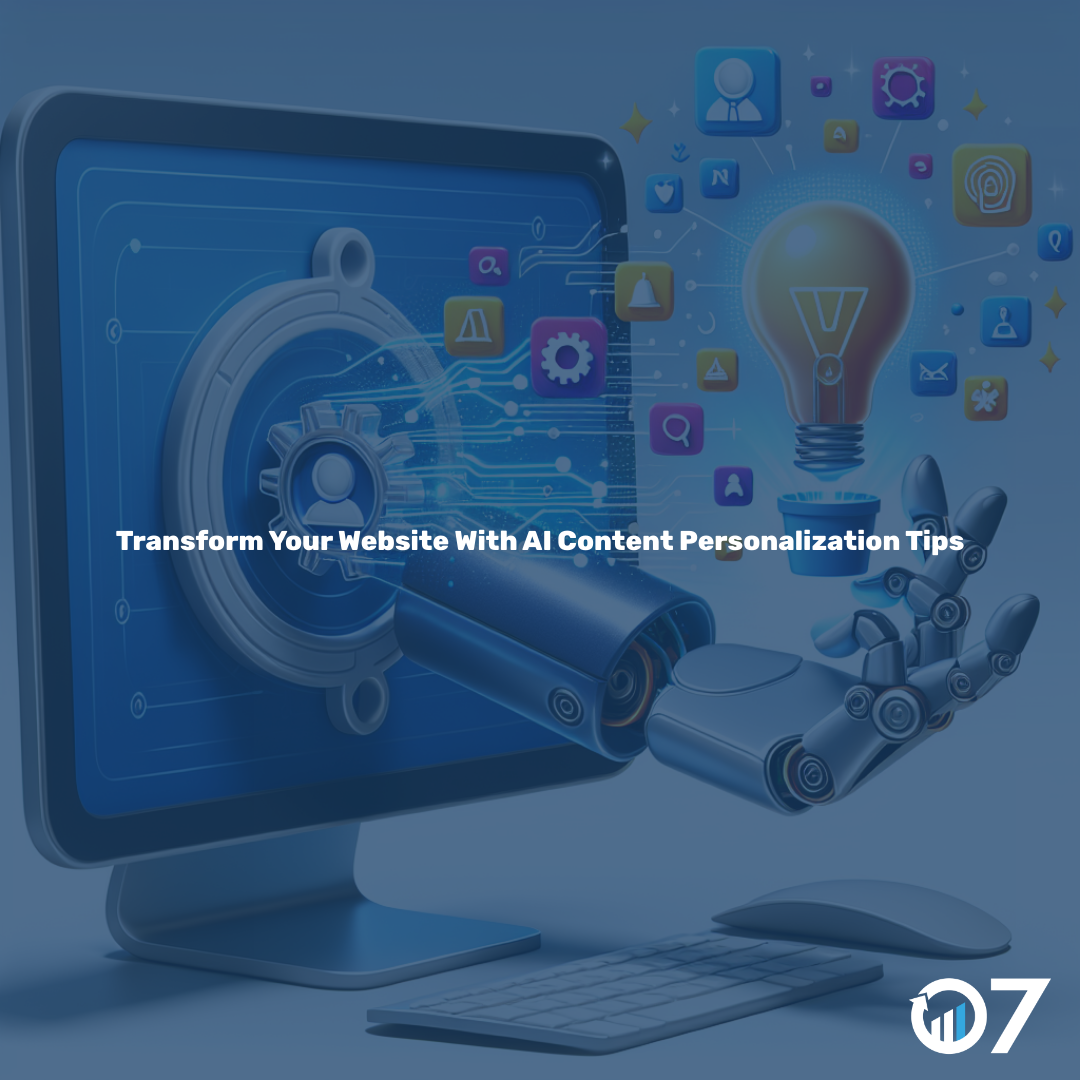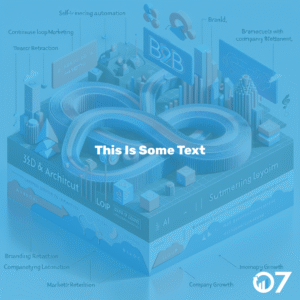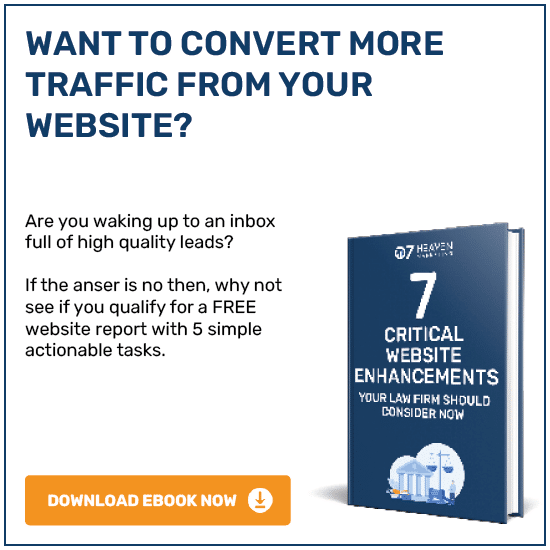AI Content Personalisation Tips can significantly enhance your website, providing a tailored experience for your visitors. Read on to discover how to transform your website with these tips.
AI content personalisation is something we encounter daily. Netflix suggests new shows, and Spotify curates playlists based on my listening habits. AI drives most of the content we interact with every day.
Why AI Content Personalisation Matters for Businesses
AI content personalisation can significantly improve user experience on your website. By tailoring content to individual preferences, you can increase engagement and conversions. Personalised experiences make visitors feel valued and understood, leading to higher satisfaction and loyalty.
Implementing AI content personalisation can also provide valuable insights into customer behaviour. This data can inform your marketing strategies, helping you to target your audience more effectively. By understanding what your customers want, you can deliver content that meets their needs and expectations.
Getting Started
Before diving into AI content personalisation, it’s essential to understand your audience. Conduct market research to identify your target audience’s preferences and behaviours. This information will guide your personalisation efforts, ensuring you deliver relevant content.
Next, choose the right AI tools for your needs. There are various AI content personalisation tools available, each with its own features and benefits. Some popular options include:
- Dynamic Yield
- Optimizely
- Evergage
These tools can help you analyse user data, segment your audience, and deliver personalised content. Choose a tool that aligns with your business goals and budget.
Implementing AI Content Personalisation on Your Website
Once you’ve chosen your AI tool, it’s time to implement it on your website. Start by integrating the tool with your existing systems, such as your content management system (CMS) and customer relationship management (CRM) software. This integration will ensure seamless data flow between your systems, enabling accurate personalisation.
Next, create personalised content for your audience segments. This content can include personalised product recommendations, tailored blog posts, and customised email campaigns. Use the insights gained from your AI tool to inform your content creation, ensuring it resonates with your audience.
It’s also essential to test your personalised content to ensure it’s effective. Use A/B testing to compare different versions of your content and determine which performs best. This testing will help you refine your personalisation efforts, ensuring you deliver the most relevant and engaging content.
Best Practices
To maximise the benefits of AI content personalisation, follow these best practices:
- Focus on user experience: Ensure your personalised content enhances the user experience, making it easy for visitors to find what they’re looking for.
- Use data ethically: Respect user privacy and comply with data protection regulations. Be transparent about how you collect and use data.
- Continuously optimise: Regularly review and update your personalisation efforts to ensure they remain relevant and effective.
- Monitor performance: Track key metrics to measure the success of your personalisation efforts. Use this data to make informed decisions and improve your strategy.
- Stay updated: Keep up with the latest trends and advancements in AI content personalisation. This knowledge will help you stay ahead of the competition and deliver cutting-edge experiences.
Examples
Many businesses are already leveraging AI content personalisation to enhance their websites. Here are a few examples:
- Amazon: Uses AI to recommend products based on user browsing and purchase history.
- Netflix: Suggests shows and movies based on viewing habits and preferences.
- Spotify: Curates personalised playlists based on listening history and preferences.
These examples demonstrate the power of AI content personalisation in creating engaging and relevant experiences for users. By following their lead, you can transform your website and drive better results.
Challenges and Solutions
While AI content personalisation offers many benefits, it also comes with challenges. One common challenge is data quality. Inaccurate or incomplete data can lead to ineffective personalisation. To overcome this, ensure you collect high-quality data and regularly clean and update your data sets.
Another challenge is scalability. As your business grows, managing personalised content for a large audience can become complex. To address this, use AI tools that offer automation and scalability features. These tools can help you manage personalisation efforts efficiently, even as your audience expands.
Finally, consider the ethical implications of AI content personalisation. Ensure you use data responsibly and transparently, respecting user privacy and complying with regulations. By addressing these challenges, you can maximise the benefits of AI content personalisation while minimising potential risks.
Future Trends in AI Content Personalisation
The field of AI content personalisation is constantly evolving, with new trends and advancements emerging regularly. Some future trends to watch include:
- Hyper-personalisation: Delivering even more tailored experiences by combining AI with advanced data analytics and machine learning techniques.
- Real-time personalisation: Using AI to deliver personalised content in real-time, based on current user behaviour and context.
- Voice and visual search: Incorporating AI content personalisation into voice and visual search technologies to enhance user experiences.
- Predictive analytics: Using AI to predict user behaviour and preferences, enabling proactive personalisation efforts.
By staying informed about these trends, you can ensure your AI content personalisation efforts remain cutting-edge and effective.
Conclusion AI Content Personalisation Tips for Success
Implementing AI content personalisation tips can transform your website, providing a tailored experience for your visitors. By understanding your audience, choosing the right tools, and following best practices, you can deliver personalised content that drives engagement and conversions.
Stay informed about the latest trends and advancements in AI content personalisation to ensure your efforts remain relevant and effective. For more insights and tips, visit our blog or contact us via email at info@07hm.co.uk or telephone at 01702 410663.





